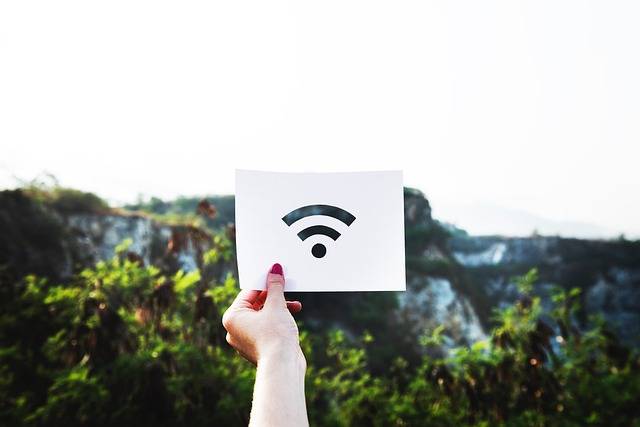As technology continues to evolve, so does the speed of our wireless networks. 5G is the latest in wireless network technology and has been touted as being faster than WiFi.
In this blog article, we will explore the speed of 5G vs. WiFi, discuss its advantages and disadvantages, uncover its benefits for a faster network connection, compare it to other wireless technologies and determine if now is the time to upgrade your current network connection.
Table of contents: Is 5g faster than wifi
- Exploring the Speed of 5G vs WiFi
- What are the Advantages and Disadvantages of 5G?
- Uncovering the Benefits of a Faster Network Connection
- Comparing Wireless Technologies: How Does 5G Stack Up?
- Is Now The Time to Upgrade to a 5G Network?
The fifth generation of cellular technology, 5G, is quickly becoming the new standard for wireless connectivity. With its promise of faster speeds and lower latency than ever before, it’s no surprise that many people are wondering if 5G is faster than Wi-Fi.
The short answer to this question is yes; in most cases, 5G will be faster than Wi-Fi. This is because 5G networks use higher frequency radio waves which can carry more data at a time compared to the lower frequency radio waves used by Wi-Fi networks. Additionally, 5G networks have been designed with greater capacity in mind so they can handle more users and devices simultaneously without slowing down or dropping connections like older generations of cellular technology could do.
However, there are some caveats to consider when comparing the two technologies side by side: First off, not all areas have access to a reliable or fast enough connection for true “5G speed” yet as it still has limited coverage across much of the world; secondly even if you do have access to a good quality connection your actual download speeds may vary depending on how far away from an antenna you are located as well as other factors such as weather conditions.
Finally, while both technologies offer high-speed internet connections, their respective upload speeds may differ significantly due to differences in how they transmit data (5g being better suited for larger files).
Exploring the Speed of 5G vs WiFi
As the world continues to move towards a more connected future, it is important to understand the differences between 5G and WiFi. While both are wireless technologies that allow us to access data quickly and easily, there are some key differences in terms of speed.
5G networks offer much faster download speeds than traditional WiFi connections. This means that users can experience faster-streaming services such as Netflix or Hulu without buffering or lag time. Additionally, 5G has lower latency which allows for quicker response times when playing online games or using virtual reality applications.
In comparison, most home WiFi networks have maximum download speeds of around 100 Mbps, while 5G can reach up to 1 Gbps (1000 Mbps). This makes a huge difference in terms of how quickly you can access data from the internet on your device. Furthermore, with 5G being able to handle more devices at once due to its wider bandwidth capacity, this could be beneficial for households with multiple people accessing different types of content simultaneously without any slowdown in performance levels across all devices connected to one network connection.
Overall it is clear that 5g offers significantly higher speeds than wifi making it an attractive option for those who want fast, reliable internet service no matter where they go! With its wide range of benefits over traditional wifi connections, it’s easy to see why many people are turning towards this new technology as their preferred choice when connecting online!
What are the Advantages and Disadvantages of 5G?
As the world continues to evolve, so does technology. 5G is the latest advancement in mobile network technology and it has been touted as being faster than wifi. But what are the advantages and disadvantages of this new technology?
The main advantage of 5G is its speed; it can provide download speeds up to 100 times faster than 4G networks, which makes it ideal for streaming media or downloading large files quickly. Additionally, 5G networks have lower latency rates compared to previous generations of cellular networks, meaning that data transmission will be more reliable with less lag time between devices. This could potentially revolutionize gaming experiences on mobile devices as well as other applications that require real-time communication, such as virtual reality or augmented reality applications.
However, there are also some drawbacks associated with 5G technology. One major disadvantage is its cost; due to its high bandwidth requirements, and complex infrastructure setup, costs can be quite expensive for both consumers and businesses alike who want access to a reliable connection in their area.
Additionally, because these connections rely on radio waves, they may not penetrate through walls very well, which could lead to spotty coverage indoors or in certain areas where signal strength might be weak due to environmental factors like buildings blocking signals from reaching certain locations outside of an urban center’s core area.
Finally, while many countries have begun rolling out their own versions of 5g service, there are still many regions around the world without access yet, making adoption slower overall when compared to other technologies like wifi which has become ubiquitous over recent years.
Overall,5g offers great potential but comes with some drawbacks too. It’s important for users considering switching over from traditional internet services such as cable or DSL providers to weigh all pros & cons before making any decisions about upgrading their home network setup.
Uncovering the Benefits of a Faster Network Connection
As businesses and households increasingly rely on the internet for communication, entertainment, and work-related activities, it is essential to have a fast network connection. The introduction of 5G technology has revolutionized the way we access information online by providing faster speeds than ever before. With their high-speed capabilities, 5G networks can offer numerous benefits that make them an attractive option for both home users and businesses alike.
For starters, 5G networks are capable of delivering data at much higher speeds than traditional Wi-Fi connections. This means that users can enjoy faster download times when accessing websites or streaming content from services like Netflix or YouTube. Additionally, with increased bandwidth capacity provided by 5G networks compared to Wi-Fi connections, more devices can be connected simultaneously without experiencing any noticeable slowdowns in performance due to congestion on the network.
Moreover, with improved latency levels offered by 5G technology over Wi-Fi connections – which measures how quickly data is sent between two points – applications such as video conferencing will experience fewer delays in transmission time, resulting in smoother conversations between participants regardless of their location around the world.
Finally, yet importantly; security is also enhanced with a faster connection thanks to better encryption protocols used within these newer technologies, which help protect users’ personal information from malicious actors looking to exploit vulnerabilities found within older systems such as those used for Wi-Fi networks today.
Comparing Wireless Technologies: How Does 5G Stack Up?
As the world of technology continues to evolve, so too does the wireless industry. With 5G now available in many parts of the world, it’s important to understand how this new technology stacks up against existing wireless technologies such as Wi-Fi.
When comparing 5G and Wi-Fi, there are a few key differences that need to be taken into consideration. For starters, 5G is much faster than Wi-Fi – with speeds reaching up to 10 Gbps compared to 1 Gbps for most current Wi-Fi networks. This means that users can experience significantly faster download and upload speeds when using a 5G network over a traditional Wi-FI connection.
In addition, while both technologies use radio waves for communication purposes, they differ in terms of frequency range used: While 2GHz is typically used by WiFi networks (which provides coverage within limited areas),5g uses higher frequencies ranging from 30 GHz – 300 GHz which allows wider coverage area but at shorter distances due its high absorption rate by walls or other obstacles. As such, this makes it ideal for applications where large amounts of data need to be transferred quickly and reliably over long distances without any interruption.
Finally, another major difference between these two technologies lies in their latency rates: While wifi has an average latency rate of around 20 ms, 5g’s low latency capabilities allow devices connected on its network to achieve response times as low as 1ms making it suitable for real-time applications like streaming services or online gaming.
Is Now The Time to Upgrade to a 5G Network?
As the world continues to embrace technology, it is no surprise that 5G networks are becoming increasingly popular. With faster speeds and greater reliability than traditional Wi-Fi networks, 5G offers a number of advantages for businesses and consumers alike. But is now the right time to upgrade to a 5G network?
The answer depends on your specific needs. If you require fast download speeds or need reliable access in areas with poor cellular coverage, then upgrading to a 5G network may be beneficial for you. Additionally, if you have multiple devices connected at once or use streaming services such as Netflix or Hulu frequently, then switching over could improve your overall experience significantly.
On the other hand, if you don’t need blazing-fast internet speeds and can get by with what Wi-Fi currently provides – especially if cost is an issue – then sticking with your current setup might be best for now until prices come down further in the future.
Ultimately it comes down to weighing up all of these factors before making any decisions about whether upgrading to a 5g network makes sense for you right now; however, there’s no denying that this new technology has some significant benefits which should not be overlooked when considering an upgrade in the near future!





